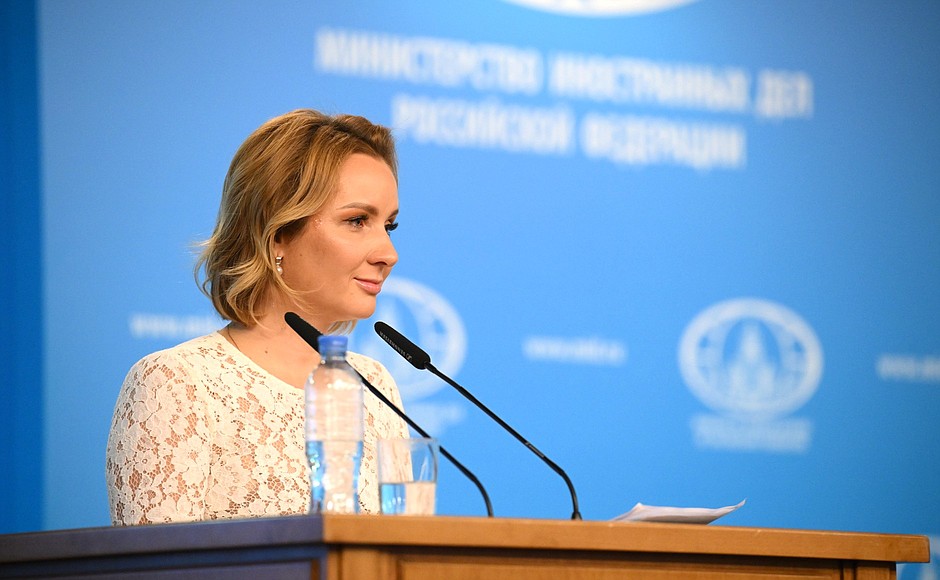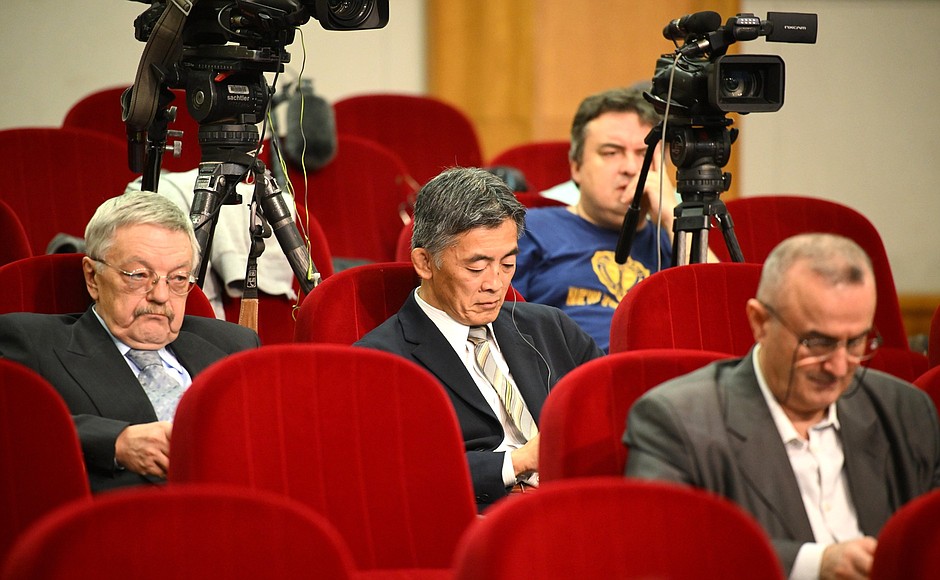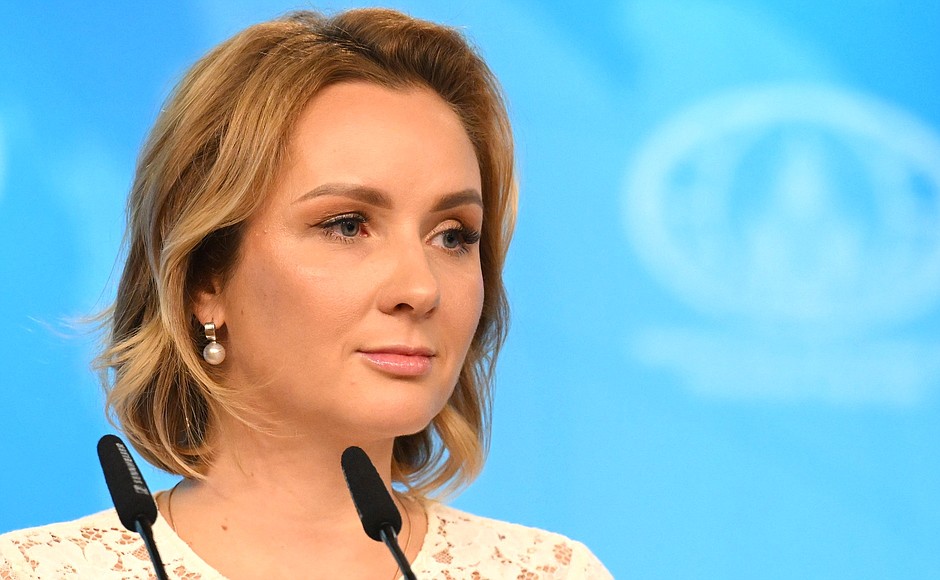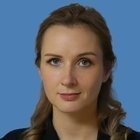At a meeting with Russian and foreign journalists, Maria Lvova-Belova noted that, despite the unprecedented sanctions, pressure and disinformation about Russia, the international agenda of the children’s rights advocacy has expanded significantly.
The Commissioner’s office continues its humanitarian mission in the Middle East, which began in 2018 at the instruction of the President. Since then, 513 children have been able to return to Russia from Syria, Iraq, Pakistan and Turkiye. The documents are also ready for the relocation of 150 more children who are currently in the refugee camps in the northeast of the Syrian Arab Republic.
Russian-African cooperation is developing actively. With the involvement of the Russian Orthodox Church, humanitarian centres will open in Africa to provide children with water, food, medical aid, medicines and clothes.
Cooperation with the Commonwealth of Independent States is also improving. This year, the Commission of Children’s Rights Commissioners from the CIS member states, which was created at the initiative of the Russian party, began its work. It comprises children’s ombudsmen and other authorized representatives from six countries: Armenia, Belarus, Kazakhstan, Kyrgyzstan, Tajikistan and Russia.
The protection of children’s rights during the special military operation is a major issue in terms of the involvement of the office of the children’s rights commissioners. To provide targeted humanitarian aid to families with children and those in children’s homes, the Into the Hands of Children campaign was launched in the spring of 2022. Since then, 27 humanitarian aid convoys have been organised and targeted assistance has been provided to some 13,000 people. Overall, more than 240 tonnes of humanitarian aid worth over 164 million rubles have been delivered. To streamline work and provide more effective assistance, humanitarian centres opened in Donetsk, Mariupol, Lugansk, Melitopol and Genichesk, which handled requests from over 3,000 families with children this year. In addition, assistance is being provided to organise emergency medical care and rehabilitation for children; minors with injuries are treated in federal clinics.
An institute of children’s rights commissioners is being created in the new Russian regions. Relevant laws have been adopted in the Donetsk and Lugansk people’s republics. There are plans to create a similar position in the Kherson and Zaporozhye regions. Children’s Rights Commissioner’s strategic programmes are being implemented in the new regions, in particular, three new centres for teenagers will open in Makeyevka, Mariupol (DPR) and Belovodsk (LPR) before the end of the year. Spaces for teenagers are being created as part of the Teenagers of Russia strategic programme, with training underway for their staff.
In addition, work continues with teenagers who survived the hostilities.
Maria Lvova-Belova also spoke about her office’s work to reunite families separated by the war. All applications are being processed consistently and in an open way. A communications channel has been set up with the Ukrainian party to exchange information, verify data and coordinate the process of reuniting families. With the direct participation of the Russian human rights centre, 35 children from 24 families were reunited with their relatives in Ukraine and other countries. In addition, children whose parents sent them on holiday to resorts in the Republic of Crimea and the Krasnodar Territory in the late summer-autumn 2022, have returned to their families.
Maria Lvova-Belova refuted information published on Ukrainian websites about 19,000 children being allegedly forcibly moved to Russia: these reports are false.
The Presidential Commissioner for Children’s Rights also receives requests from parents living in Russia who want to reunite with their children in Ukraine. For example, with the support of the Commissioner’s office, a mother was reunited with her daughter who had been staying at a Ukrainian social rehabilitation centre; 17 more similar requests are being processed.
Maria Lvova-Belova also answered journalists’ questions.



